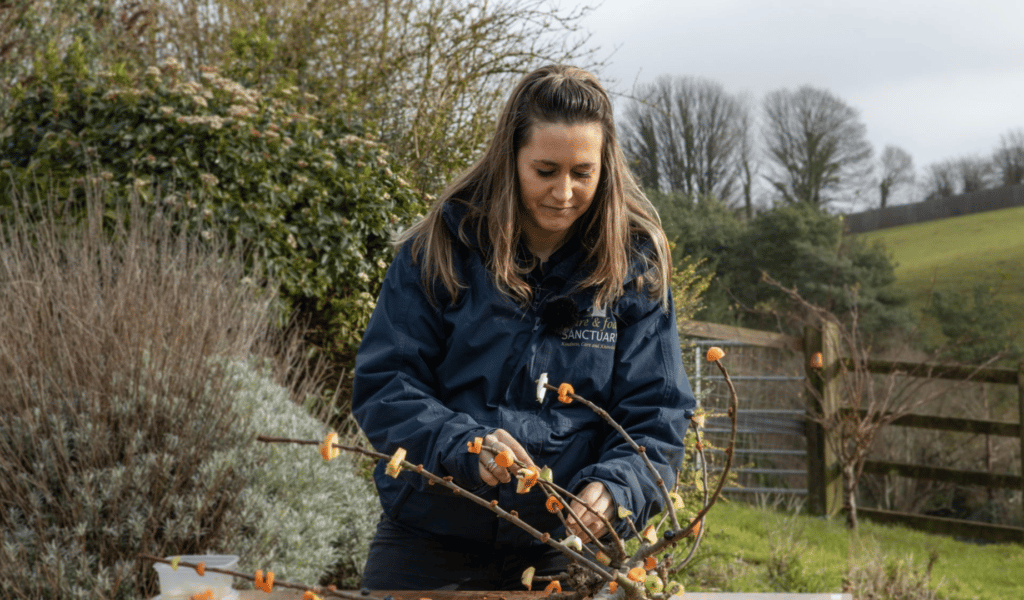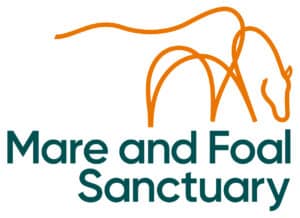What is Enrichment?
Enrichment simply means that we provide a more stimulating environment for our horses, to help improve their mental and physical wellbeing, by stimulating their natural instincts.
Enrichment comes in many forms and can be split between five main categories – sensory, social, food-Based, environmental and cognitive.
We can help to improve our horse’s mental and physical well-being through the exploration of smell, taste, grazing and foraging, movement and social interaction.
It’s important to highlight that enrichment is not about preventing boredom. It’s about understanding our horse’s natural behaviours and providing the opportunity for them to express these behaviours.
The ultimate aim of enrichment is to improve the horse’s quality of life.

Why is it important?
We know that an essential factor of good equine welfare is the opportunity for our horses to express natural behaviours. In a domesticated setting it can be difficult to ensure these equine needs are met, so by providing appropriate enrichment, we can help our horses thrive in their environment and live a fulfilling life.
In a natural environment, horses will be almost continuously active, walking distances of up to 30km per day and grazing or browsing for 16 to 18 hours per day.
Enrichment helps to reduce inactivity and helps to stimulate the horses natural foraging instincts and other natural behaviours.
When a horse’s behaviour is restricted, they are unable to carry out these essential locomotory and grazing behaviours, which has a negative impact on both their mental and physical health and could result in the development of behaviour problems.
How do we implement enrichment?
We can use enrichment techniques to meet our horses needs in a variety of ways. Here are some tips to help you get started:
-
The opportunity for social interaction with other equines
An extremely important aspect of enrichment is the need for social contact with other equines. Horses are sociable herd animals who develop close bonds with one another and rely on their companions for safety, so being able to socialise with equine companions is a key equine need.
We can provide social enrichment for our horses by ensuring they always have direct company of another equine and the opportunity for natural interaction to occur.
Human interaction can also help to provide enrichment too, for example, through massage or grooming. These positive and enjoyable interactions help to create trusting bonds and promote relaxation, benefitting both the horse and the handler’s wellbeing.
-
Adaptations to the horse’s living environment
Environmental enrichment is focussed on making adjustments to your horse’s natural living environment, such as providing a variety of different surfaces and substrates to walk over, providing water in more central locations and providing plants and hedgerows within their environment on which they are able to browse.
A great and simple way to provide environmental enrichment is to increase the time your horse spends in the field each day and only stabling for limited periods when absolutely necessary. When they are stabled, consider using straw as a bedding as this has been found to promote resting and foraging behaviour. Straw beds should be avoided if your horse has respiratory issues, but you can still encourage foraging behaviour providing a treat scatter on the clear floor around your horses bed instead. Where possible, allow for group housing of horses together.
Another great way to adapt the environment is to add objects that can be used for scratching. An old (but clean) broom head is perfect for this! Unwanted pieces of bumpy rubber matting and covered pillows can also be attached to walls or fences to provide alternative scratching sensations!
-
Experiences that encourage natural stimulation through, sight, sound and smell
In their natural environment, a horse’s sense of smell plays a vital role in survival. From a mare recognising the scent of her new-born foal, to a herd recognising the scent of a predator.
We can encourage a more positive perception of the horse’s environment by introducing new scents, such as basil, chamomile and lavender.
When you introduce a new smell, you might witness your horse displaying the flehmen response, an indication that they are exploring and evaluating the new or unusual smell.
-
Stimulation of varied grazing and foraging instincts
Horses are trickle feeders who are designed to eat low calorie, high fibre forage for 16 to 18 hours per day, so many enrichment activities are based around food and foraging behaviours.
There are endless opportunities to provide food-based enrichment, from providing treat balls or a scatter of their favourite treats, to introducing a variety of herbs to the horses haynet or creating a treat branch.
-
The opportunity to explore, problem solve and learn
Cognitive enrichment encompasses positive training and exploratory activities, which help to prevent the display of abnormal behaviours.
We can provide cognitive enrichment through clicker training, or food-based activities that require the horse to search for food.
Remember…
When providing your horse with new enrichment items it is important to monitor them for any signs of frustration, since this would have a negative impact on their welfare.
Some horses may initially need some help in learning how to problem solve when provided with new enrichment items so their behaviour should be monitored closely.
Enrichment items should also be changed regularly, ideally on a daily basis to prevent the horse from becoming disinterested in them.
Enrichment is a vital part of ensuring positive welfare for our horses and should be part of our normal daily routine rather than being considered as an optional luxury.
Downloadable Information
Take a look at our downloadable version of this page, to keep or share.
Downloadable VersionOur Work at The Mare and Foal Sanctuary
Advice and Resources
Lifelong Sanctuary
Rehoming



